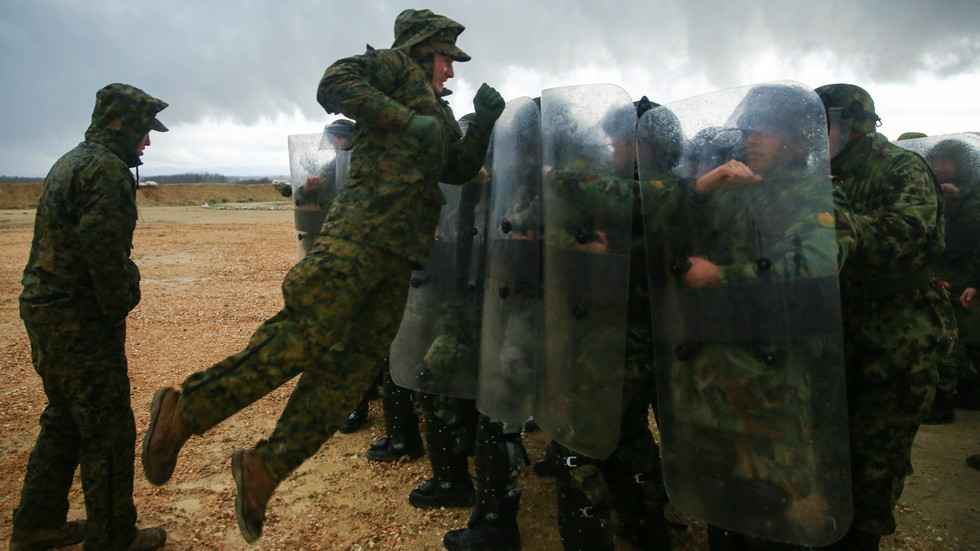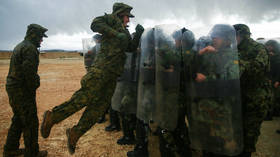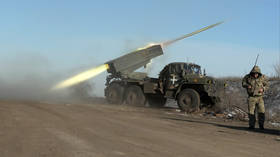
Belgrade’s ambassador to Washington says the two countries share “compatible values”

File photo: US Marines try to break through a riot wall of Bulgarian and Serbian soldiers during Platinum Wolf drills in Serbia, November 19, 2019. © Global Look Press/USMC Sgt. Derrick Irions
Belgrade is committed to deeper ties with Washington based on common values, Serbia’s ambassador to the US Marko Djuric has told a friendly news outlet. Meanwhile, President Aleksandar Vucic on Friday objected to the rhetoric of some US officials as being “stuck in the 1990s.”
Vucic was responding to remarks by James Rubin, who was the State Department spokesman during NATO’s 1999 war on Serbia and is now head of the US Global Engagement Center, a government propaganda outfit. Visiting Montenegro earlier this week, Rubin had called Belgrade a center of “Russian disinformation.”
“That is nowhere close to the truth,” Vucic said, accusing Rubin of still harboring animosity for the Serbs. Belgrade will nonetheless maintain a policy of friendship towards the US, the president said, while remaining a free and independent country and avoiding conflict with China and Russia.
The US and the EU have sought to pressure Serbia into recognizing the breakaway province of Kosovo and joining their sanctions against Russia over the Ukraine conflict. Vucic insists he has not agreed to this, though Brussels and Washington act as if he had.

Read more
Ambassador Djuric told the outlet Kurir on Thursday that he is hoping to soon open a “new phase of strategic dialog” with the US. Djuric insisted that the “prevailing tone of bilateral communication” with the US was “extremely positive” and that Serbia can look forward to eventual visa liberalization, a tax treaty, and improved cooperation in technology. He did not give a timeline for any of those commitments, however.
Pointing to his recent meeting with State Department’s Counselor Derek Chollet, Djuric said that Serbia intends to “intensively deepen” its relations with the US, noting the growing volume of trade, military cooperation with the Ohio National Guard, and the growing presence of Serb basketball players in the NBA.
To counter “three decades of unjustly negative” media coverage, Djuric said he would tell his American hosts that Serbia is now focused on development, a higher standard of living, and “values that are entirely equivalent and compatible with European and American.”
NATO bombed Serbia for 78 days in 1999, on behalf of ethnic Albanian separatists in Kosovo. Last month, on the anniversary of the conflict, the US ambassador in Belgrade said the Serbs should “set aside their grievances.” Vucic responded that Serbia will never forget the aggression of the West.




